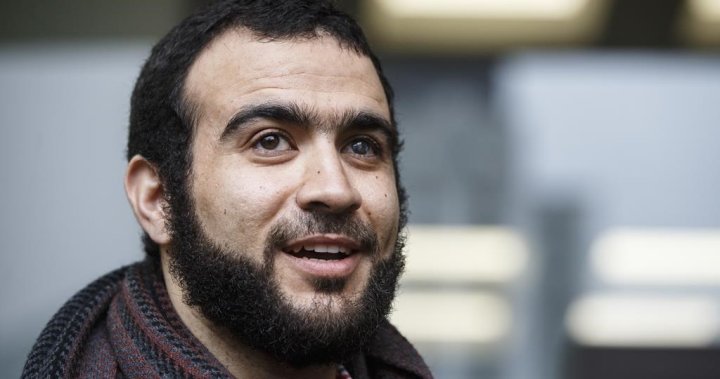The United States Supreme Court recently rejected an appeal by former Guantanamo detainee Omar Khadr, a Canadian-born individual seeking to overturn his war crimes convictions. Khadr had pleaded guilty in 2010 to charges that included the murder of a U.S. soldier in Afghanistan, but his lawyers argued that a subsequent ruling by the federal appeals court in Washington called into question the validity of the charges. Despite the appellate ruling, a divided three-judge panel ruled that Khadr still gave up his right to appeal, leading to the Supreme Court’s rejection of his appeal. Justices Brett Kavanaugh and Ketanji Brown Jackson did not participate in the consideration of Khadr’s appeal due to their previous involvement in the case as appeals court judges.
Khadr had initially been sentenced to eight years in prison, plus time served in custody, including several years at Guantanamo Bay. However, he was released in May 2015 pending the appeal of his guilty plea. In 2019, a Canadian judge ruled that his war crimes sentence had expired, bringing some relief to Khadr. Khadr was only 15 years old when he was captured by U.S. troops following a firefight at a suspected al-Qaida compound in Afghanistan, which resulted in the death of American special forces medic, U.S. Army Sgt. First Class Christopher Speer. Khadr was suspected of throwing the grenade that killed Speer and was subsequently taken to Guantanamo, where he was charged with war crimes by a military commission.
The rejection of Khadr’s appeal by the Supreme Court means that his convictions for war crimes, including the murder of a U.S. soldier, still stand. Despite efforts by his lawyers to challenge the charges, citing a federal appeals court ruling, the Supreme Court maintained that Khadr had given up his right to appeal when he pleaded guilty in 2010. The involvement of Justices Kavanaugh and Jackson, who recused themselves due to prior involvement in the case, added a layer of complexity to the Supreme Court’s consideration of Khadr’s appeal.
Khadr’s case has sparked controversy and debate, with some advocating for his rights as a former child soldier, while others argue that he should be held accountable for his actions. The circumstances surrounding Khadr’s capture and detention, including his age at the time of the incident, have raised questions about the treatment of individuals involved in conflicts as minors. However, the rejection of his appeal by the Supreme Court reinforces the convictions and sentences handed down to Khadr, leaving him with few legal options to challenge his war crimes convictions.
Overall, the Supreme Court’s decision to reject Omar Khadr’s appeal upholds his war crimes convictions, including the murder of a U.S. soldier in Afghanistan. Despite efforts by his legal team to challenge the charges, citing a federal appeals court ruling, the Supreme Court ultimately maintained that Khadr had waived his right to appeal when he pleaded guilty in 2010. The complexities of the case, including the recusal of Justices Kavanaugh and Jackson due to prior involvement, highlight the challenges and nuances of legal proceedings involving high-profile and contentious issues such as this. Khadr’s case continues to generate debate and discussion around the treatment of individuals involved in armed conflicts, especially when they were minors at the time of the alleged offenses.













